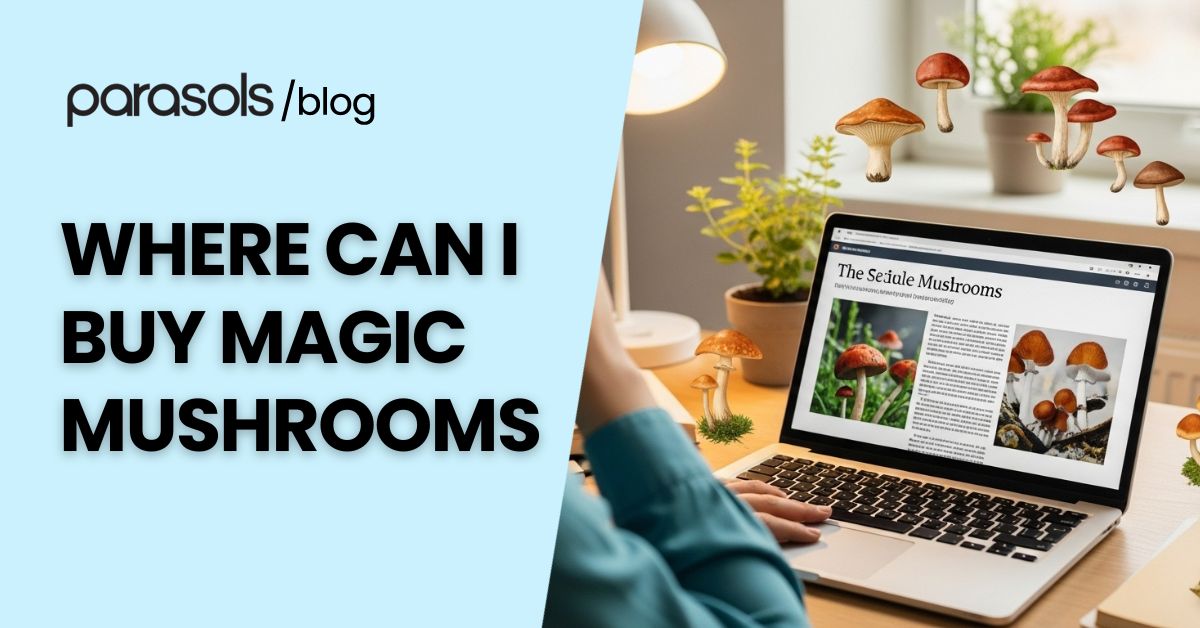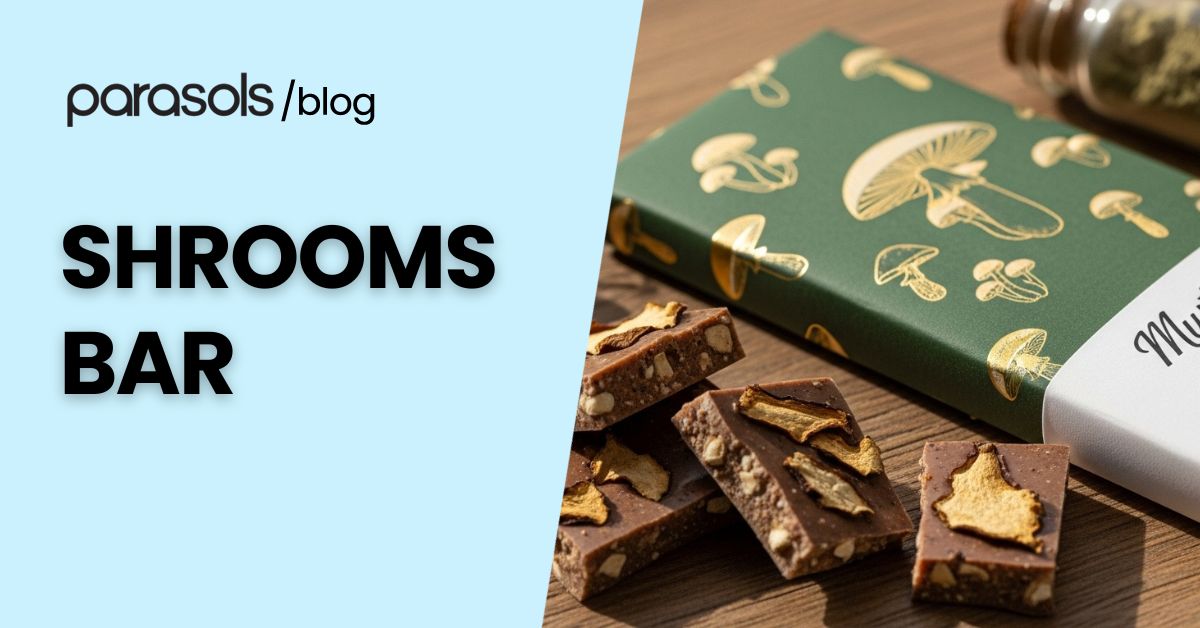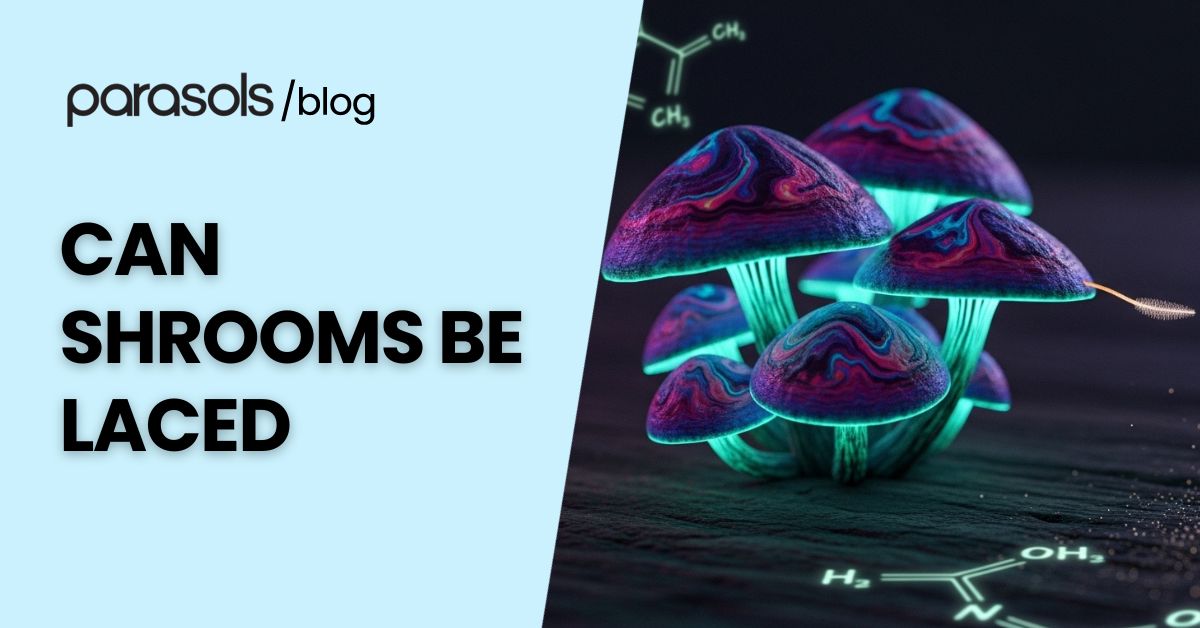Curiosity about magic mushrooms has been growing everywhere, from friends sharing stories about emotional clarity to people learning natural health alternatives. Whether you’re interested in their psychedelic effects, medicinal potential, or just want to understand what’s legal where you live, it’s only natural to wonder where you can actually buy magic mushrooms and what the safest, most responsible ways to do it are.
Key Takeaways
- Legal psilocybin access is limited to regulated programs, clinical trials, or decriminalized regions
- Spores and grow kits are legal in some areas but cultivating psilocybin remains restricted
- Online or dispensary sales are only permitted where laws explicitly allow it
- Always verify source transparency, lab testing, and local legal compliance before buying
- Responsible use includes safe dosing, quality control, and awareness of potential health risks
Where Can I Buy Magic Mushrooms?

Interest in magic mushrooms has been rising steadily as people study natural ways to support mental and emotional well-being. From those curious about psychedelic experiences to individuals researching medicinal benefits, one common question remains: where can you safely and responsibly buy magic mushrooms?
Legal and Regulated Programs
In certain regions, governments have introduced legal frameworks that allow psilocybin use under supervision. Oregon’s Measure 109, for example, created licensed centers where trained facilitators administer psilocybin sessions in controlled environments.
These programs emphasize safety and mental health screening before administration. They don’t allow open retail sales, but they offer one of the most legitimate and responsible routes for those seeking guided experiences.
Clinical Trials and Research Studies
Participation in clinical research is another legal way to access psilocybin mushrooms or related compounds. Studies are often conducted by universities and medical institutions examining treatments for depression, PTSD, and anxiety.
Participants receive standardized doses of specific mushroom strains, with the process carefully monitored by professionals. This option offers the highest level of safety and oversight while contributing to valuable scientific research.
Licensed Dispensaries in Permissive Regions
Some areas that have decriminalized psychedelics now permit licensed dispensaries or wellness centers to sell magic mushroom products or truffle alternatives. These stores may stock medicinal mushrooms, microdose capsules, and educational materials on dosage and safety.
However, even in permissive regions, laws can change quickly, so verifying local regulations remains essential.
Spores, Grow Kits, and Non-Psychoactive Alternatives
In many places where psilocybin mushrooms are illegal, mushroom spores and grow kits can still be purchased legally. Spores, such as cubensis spores or liquid culture samples, don’t contain psilocybin or psilocin and are often sold for research or microscopy.
While cultivation may be tempting, growing mushrooms that contain psilocybin in areas where it’s prohibited still carries significant legal risks. Non-psychoactive options like lion’s mane and other medicinal fungi remain safe and accessible alternatives.
Online Vendors (Where Legal)
In countries or states with relaxed regulations, online stores may sell magic truffles, microdosing products, or dried psilocybin mushrooms. Reputable vendors typically provide information on strain, potency, testing, and delivery policies.
Before purchasing, it’s important to confirm local laws, review customer feedback, and ensure products come from tested, reliable sources. Responsible sourcing helps maintain quality and minimizes health or legal risks.
Safety and Responsibility
Legal status varies widely between countries and even within states or provinces. Quality control matters—look for vendors that test for potency, purity, and contamination. Dosage should always be approached cautiously, as effects can vary greatly between individuals and mushroom strains.
Common psilocybin mushroom species, such as psilocybe cubensis or golden teacher, can produce noticeable effects lasting four to six hours. Emotional clarity, introspection, and shifts in perception are often reported, but experiences can also carry psychological risks. Anyone with underlying mental health conditions should consult a medical professional before consumption.
What to Look for When Buying Shrooms
Choosing the right magic mushroom product makes a huge difference in both safety and experience. The list below highlights key qualities to check before making a purchase.
- Source reputation and transparency: Look for sellers or dispensaries that clearly explain where and how their mushrooms are grown, tested, and shipped. Reputable sources openly share cultivation methods, mushroom strain information, and lab results. A lack of transparency can indicate poor quality or contamination.
- Lab testing and purity: Reliable products are lab-tested to confirm the absence of harmful contaminants such as mold, pesticides, or heavy metals. Testing also verifies levels of psilocybin and psilocin, helping ensure consistent potency and safety.
- Accurate potency and dosage information: Quality vendors clearly label potency, recommended dosage, and the psilocybin mushroom species or strain used. Avoid products with vague terms like “strong” or “mild,” as they make dosage difficult to determine.
- Appearance, dryness, and integrity: Good mushrooms are evenly dried, free of moisture, and have a clean, natural appearance. Avoid those that appear slimy, bruised, or have white fuzz or black spots—these may signal mold or poor storage.
- Consistency and strain uniformity: The same strain should look, smell, and feel consistent across the batch. Mixed or uneven samples can lead to unpredictable potency and effects.
- Secure and discreet packaging: Mushrooms should be sealed in moisture-proof, light-protective packaging that prevents contamination and preserves freshness. Responsible vendors use discreet delivery methods that protect both product and privacy.
- Reasonable pricing: Very low prices may suggest poor cultivation or untested products, while extremely high prices don’t always guarantee better quality. Look for fair, transparent pricing that reflects product quality and proper testing.
- Customer support and guidance: Reputable sellers offer educational resources, dosage tips, and clear safety information. A vendor that answers questions and promotes responsible use demonstrates genuine care for user well-being.
- Legal compliance and awareness: Laws vary widely between countries and even regions. Choose vendors who operate responsibly within legal boundaries, clearly stating where they can ship or sell.
- Shelf life and storage information: Freshness matters—check for packaging that includes harvest or best-before dates, and storage instructions such as keeping mushrooms in a cool, dry place with desiccant packs to preserve potency.
Are Magic Mushrooms Legal?
In the United States, magic mushrooms—those containing the psychoactive compounds psilocybin and psilocin—are classified as Schedule I controlled substances under federal law. This means they are illegal to buy, sell, possess, or cultivate nationwide, as they are considered to have a high potential for abuse and no accepted medical use at the federal level.
However, laws are shifting in some parts of the country. Oregon became the first state to legalize supervised psilocybin therapy through Measure 109, allowing licensed facilitators to administer psilocybin in controlled settings. Colorado followed by decriminalizing personal possession and cultivation for adults through Proposition 122.
In addition, several cities—including Denver (CO), Oakland (CA), Santa Cruz (CA), Seattle (WA), and Washington, D.C.—have decriminalized psilocybin to varying degrees. This doesn’t make it fully legal, but it means law enforcement prioritizes other offenses over personal possession or use.
Despite growing reform efforts, psilocybin remains illegal under federal law, and transporting it across state lines or selling it commercially is still a criminal offense. The landscape continues to develop as more states consider measures to allow therapeutic or decriminalized use in the coming years.
Final Thoughts

As interest in magic mushrooms continues to grow, understanding where to buy them—and how to do so safely and legally—has never been more important. While laws across the United States are developing, responsible sourcing, proper education, and awareness of local regulations remain key.
If you’re ready to experience trusted options and learn more about safe, responsible use, study where to buy high-quality magic mushrooms today. Parasols offer high quality mushroom gummies like our pineapple non detect shroom gummies.
Frequently Asked Questions
How long do magic mushrooms take to kick in?
Effects usually begin within 30 to 60 minutes after consumption, depending on factors like dosage, body weight, and whether they’re taken on an empty stomach.
How long do the effects of magic mushrooms last?
A typical experience lasts about four to six hours, with peak effects occurring between the first and third hour.
Can magic mushrooms be detected in a drug test?
Most standard drug tests don’t screen for psilocybin or psilocin, but specialized tests can detect them within 24 hours of use.
What’s the safest way to consume magic mushrooms?
Many people prefer to start with a low dose or microdose to gauge their sensitivity. Consuming mushrooms in a calm, comfortable setting with a trusted companion improves safety and comfort.
Can magic mushrooms cause addiction?
Psilocybin mushrooms are not considered physically addictive, but frequent or irresponsible use can lead to psychological dependence or tolerance over time.
How should magic mushrooms be stored?
Keep dried mushrooms in an airtight container, away from light, heat, and moisture. Adding a desiccant pack helps preserve potency and prevents mold growth.
Are there any health risks?
While many users report positive experiences, psilocybin can trigger anxiety, paranoia, or confusion, especially at high doses or in unsafe environments. Those with mental health conditions should consult a medical professional before use.
What’s the difference between magic mushrooms and magic truffles?
Both contain psilocybin, but magic truffles are the underground part of the fungus. They produce similar effects, though truffles are legal in some countries where mushrooms are not.
Can I travel with magic mushrooms?
No. Transporting psilocybin mushrooms across state or national borders is illegal and can result in severe penalties, even if they’re decriminalized in one location.
What should I do if I have a bad trip?
If anxiety or panic occurs, stay calm, change your environment, and focus on slow breathing. Having a sober, supportive person nearby can help. If symptoms become severe, seek medical attention immediately.



Leave a comment
All comments are moderated before being published.
This site is protected by hCaptcha and the hCaptcha Privacy Policy and Terms of Service apply.